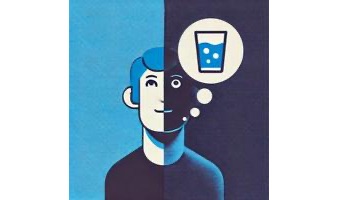From Peloton to mindfulness apps, wearable to food delivery services, there are many options for working on your personal wellness by yourself. As AI develops, you’ll likely also be able to get interactive coaching or personal training in the same manner. For some, this will work well. However, there is still a case for coaching from a real person. That’s because the human touch is critical for helping someone navigate the trials and tribulations of making meaningful change.
A Human Therapist Vs. a Chatbot
There are several mental health chatbots that appear to be fairly capable of giving some basic mental wellness coaching. From what I have seen (and I haven’t seen everything) they mostly use behavioral approaches such as CBT, DBT, and/or mindfulness. A strength of each of these approaches is that they give the client something very clear and immediate to do. Meditation, positive self talk, forms of thought analysis, etc. are all simple enough to learn and do quickly. However, in my experience, they have important drawbacks too.
Coaching, Training, or Therapy from an Empathic Person
Phil Jackson once said about coaching “You have to be able to psychologically help your players, support-wise, be in touch with them…” What I think he was talking about is the fact that knowing what to do and actually doing it are not the same thing. We know that we need to exercise, eat well, get more sleep, tend to our mental health and our relationships, but a great many of us struggle to do so. The same goes for mental health. We’re all aware of meditation, and many of us know the power of gratefulness, positive self talk, journaling, and so on. We still falter when it comes to following through regularly.
Why is that? There are many reasons, but I think the most important are emotional and relational. One example I’ve seen as a coach is pressure. People often feel that they must change right now. A layer deeper, what drives that is a feeling of self-doubt—that one is fundamentally flawed, or not as good as the next person, and must be better or else they won’t be acceptable. Ah yes, there’s fertile ground for anxiety, and anxiety is a set up for failure.
How Can a Real Person Help?
How does coaching or therapy help? Here are the things that I think are most important.
1. A coach or therapist gets in touch with you as a person. If they are empathic and attuned, they can see where you are now and how to help you take the next step. This is an outside perspective—an overview—of you; one that none of us can easily do for ourselves.
2. A coach or therapist is a relationship that most people care about. It’s easy to quit on an app or chatbot, because all you have to do is delete it, or stop opening it. A coach or therapist becomes a steady, meaningful presence that can really be a tremendous, steady support.
3. A coach or therapist has their own experiences with the same things you struggle with. We all have faced fear, anxiety, disappointment, and pain in some way. A real person can connect with you on that level in a way that artificial sources just can’t—at least for now.
To conclude, I am still in favor of the technology we have as a tool and imagine there will be ever better technology in the future. For many, this will be a tremendous help and they will use these opportunities to help them reach their goals. Still though, I feel there will always be a special place for real life, in-person coaching or therapy. The human touch has something special, so if it is an option for you, I urge you to consider it.


